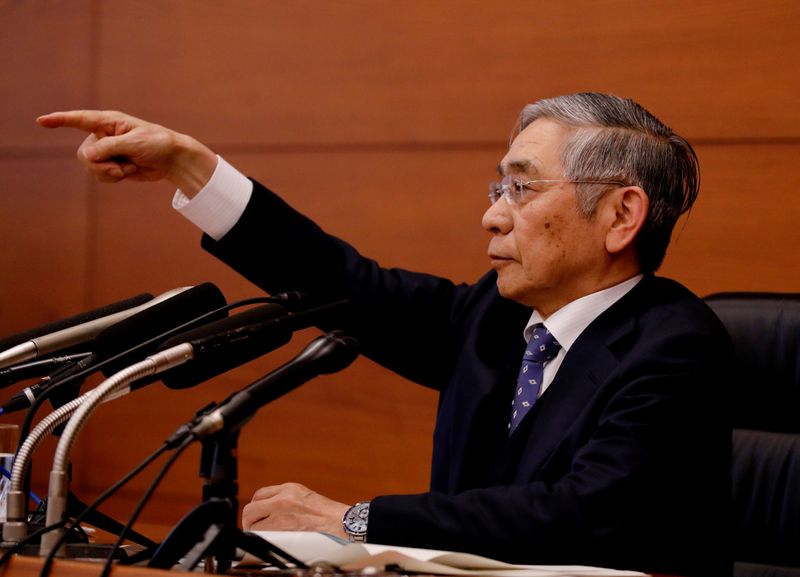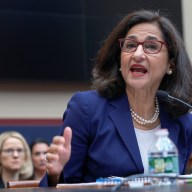TOKYO (Reuters) – The Bank of Japan may hold an emergency meeting before a scheduled rate review in June to set up a reward scheme for financial institutions that boost lending to small firms hit by the coronavirus, Governor Haruhiko Kuroda said on Thursday.
Japan’s $1.1 trillion stimulus package has cheap loans on offer for firms hit by a virus-related slump in sales, and Kuroda has ordered staff to prepare a scheme spurring financial institutions to boost lending to such firms.
“We’d like to proceed with an eye on getting the scheme ready before the next meeting in June,” Kuroda told parliament, adding that the BOJ needed to work out details with government agencies, but wanted to create the scheme as soon as possible.
“We’ll aim to get the scheme rolling quickly, even if that means holding an emergency policy meeting.”
The BOJ holds eight scheduled rate reviews each year with the next one set for June 15-16. It is rare for the central bank to hold an unscheduled meeting, which only happens when imminent changes in the economy demand a quick policy response.
Kuroda said collateral in the form of individual household loans could be difficult for the BOJ to acccept when extending cheap loans to financial institutions.
“But we’re expanding the range of private debt we accept as collateral, so that households as well as small and midsized firms can reap the benefits,” he added.
The BOJ expanded monetary stimulus on Monday to combat the widening fallout of the pandemic, which has sent the economy to the brink of deep recession by forcing families to stay home and businesses to shut down.
Most BOJ measures so far target large companies that can reasily borrow from banks or tap credit markets, creating a challenge for policymakers to reach out to smaller businesses that could go under without immediate funding support.
(Reporting by Leika Kihara; Editing by Alison Williams and Clarence Fernandez)



















